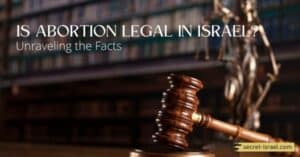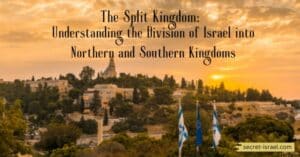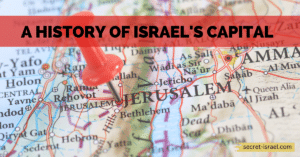Dive into the intricacies of Israel’s legal system in this comprehensive guide. We delve into the unique blend of common law and the historical influences of Ottoman and British sovereignties, along with the impact of major religious communities. Discover how this diversity shapes Israel’s judicial law today.
Join us as we delve into the rich tapestry of Israeli law.
Political Structure of the Israeli Legal System
The legal system in Israel is based on a common law system, though it also reflects the diverse history of the territory of the State of Israel throughout the last hundred years (which was at various times prior to independence under Ottoman, then British sovereignty), as well as the legal systems of its major religious communities. The three main branches of government are:
The Legislature (known as the Knesset)
The Knesset, Israel’s legislative body, is a unicameral parliament consisting of 120 members who are elected for four-year terms in a nationwide proportional representation vote. The Knesset holds the power of passing laws, electing the President and Prime Minister, approve the cabinet, and supervising the work of the government.
It can also enact laws that would cause certain articles of the Basic Law to be either changed or repealed, with a majority of the Knesset members’ approval. As the legislative branch, the Knesset is a key component of Israel’s democratic governance, embodying the diverse political, social, and cultural views of the Israeli people.
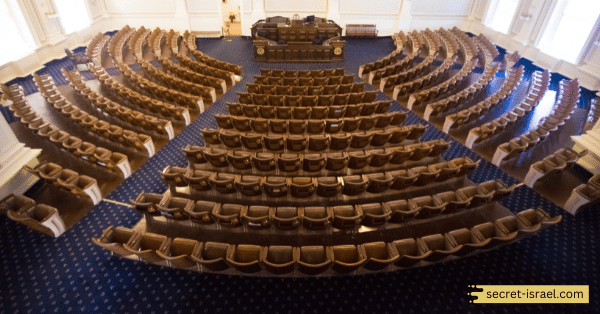
The Judicial Branch
The judicial branch is made up of the Supreme Court, district courts, and magistrates’ courts. The Supreme Court of Israel is the highest court in the country and serves as the ultimate court of appeals for all other courts beneath it. It has jurisdiction over issues related to civil law, administrative law, criminal law, international law, and religious law. The Supreme Court is empowered by the Basic Law of Israel to review, and in some cases annul, laws passed by the Knesset.
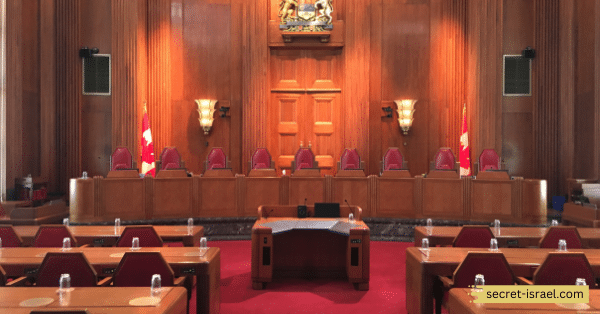
The Executive Branch
The executive branch consists of the Prime Minister and a Cabinet consisting of ministers appointed by the Prime Minister. It is responsible for carrying out the government’s policies and providing administrative services to the State of Israel. The Prime Minister is both the head of state as well as the chief executive officer. Responsible for appointing a Council of Ministers (the Cabinet) who are then approved by the Knesset.
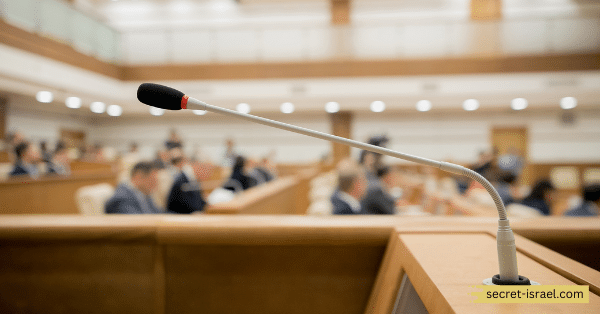
Judiciary: The Court System
The court system in Israel is divided into three tiers. The Supreme Court is the highest court in the country. Serves as the ultimate court of appeals for all other courts beneath it. It has jurisdiction over issues related to civil law, administrative law, criminal law, international law, and religious law.
Below the Supreme Court are several district courts which hear cases on civil, criminal, and administrative matters. The district court also serves as the appellate court for lower magistrates’ courts.
The lowest tier in Israel’s judicial system is that of the Magistrate Courts. Which are presided over by justices appointed by the Minister of Justice. These courts handle small claims, traffic violations, summary offenses, misdemeanor cases, and other minor legal matters.
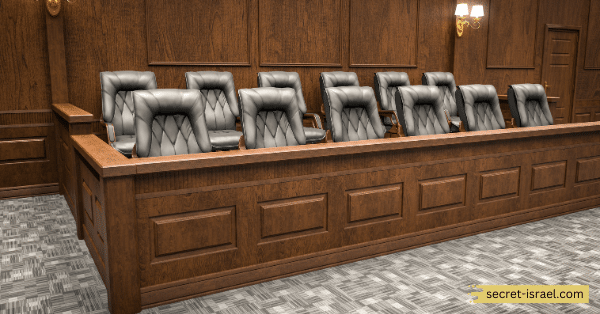
The Court System
The Israeli Court system, as mentioned earlier, consists of multiple tiers. Starting from the Magistrates’ Court and leading up to the Supreme Court. Each of these courts has a specific set of responsibilities and jurisdictional boundaries.
- Magistrates’ Court: The lowest level, with a single judge handling minor civil and criminal cases for efficient foundational justice.
- District Court: With 1 or 3 judges, it oversees Magistrates’ Courts, deals with significant civil and criminal cases, and handles complex legal matters.
- Supreme Court: The highest authority, with 1, 3, or 5 judges, holding ultimate appellate jurisdiction, intervening when needed, and having original jurisdiction over government-related issues and detainment cases.
- Special Courts: These specialized courts, including Traffic, Labor, Juvenile, and Municipal courts, have well-defined roles in specific legal areas.
- Religious Courts: Jurisdiction over marriage and divorce cases for different religious communities, such as Rabbinical courts for Jews, Sharia courts for Muslims and Druze, and Ecclesiastical courts for Christians.
In sum, the unique structure of the Israeli court system. Designed to cater to the diverse needs and backgrounds of its people. Offering avenues for justice to be served across the spectrum of society. It is a system that recognizes the importance of upholding the rule of law. While providing a platform for individuals to seek justice and equity.
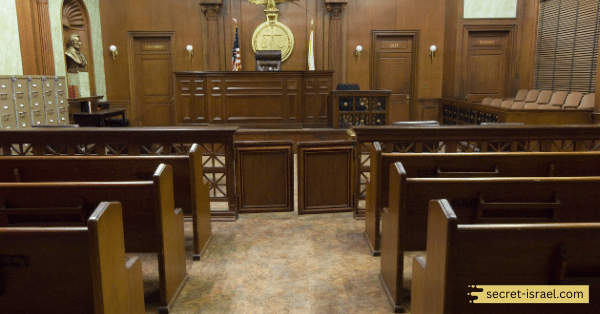
The Constitutional Process
Israel’s constitutional process is unique as the nation does not have a formal, single document referred to as the “Constitution”. Instead, Israel’s constitutional law is enshrined in its “Basic Laws”. These are a series of individual laws that collectively serve the role of a constitution. Each passed by the Knesset at different points in time.
The Knesset’s role in the constitutional process is pivotal. It is responsible for proposing, debating, and approving the Basic Laws.
The Basic Laws cover various aspects of Israeli governance and society, and they hold supreme legal standing. Any legislation or government act conflicting with these Basic Laws can be nullified by the Supreme Court. Some of the Basic Laws include:
- Basic Law: The Knesset – This law outlines the legislative procedures of the Knesset and establishes its immunity, sessions, and legislative capacity.
- Basic Law: The Government – This law defines the formation and role of the executive branch of government. It gives the processes of selecting the Prime Minister and the other Cabinet members and their powers and duties.
- Basic Law: The Judiciary – It details the establishment, role, and power of the judiciary, including the Supreme Court.
- Basic Law: Human Dignity and Liberty and Basic Law: Freedom of Occupation – These laws shield fundamental human rights and freedoms, establishing the values of Israel as a democratic state.
These Basic Laws are subject to change and amendment by the Knesset with a simple majority. The constitutional process is thus a dynamic and flexible one. Allowing for the continual evolution of Israel’s legal and societal frameworks in response to changing needs and realities.
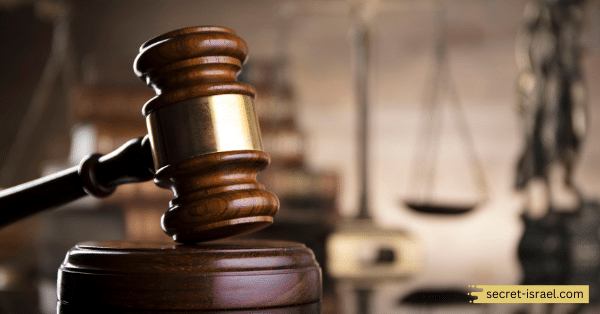
In conclusion
The Israeli legal system, with its unique blend of common law principles. Influences from its diverse historical and religious communities. Serves as a testament to the nation’s complex history and rich cultural heritage.
The distinct structure of the court system and the dynamic and adaptable nature of its constitutional process. The integral role of the three branches of government all contribute to a robust and responsive legal framework.
This comprehensive guide illuminates the intricate workings of the Israeli legal system. Providing valuable insights into its mechanisms for upholding the rule of law, protecting human rights, and maintaining democratic governance.





